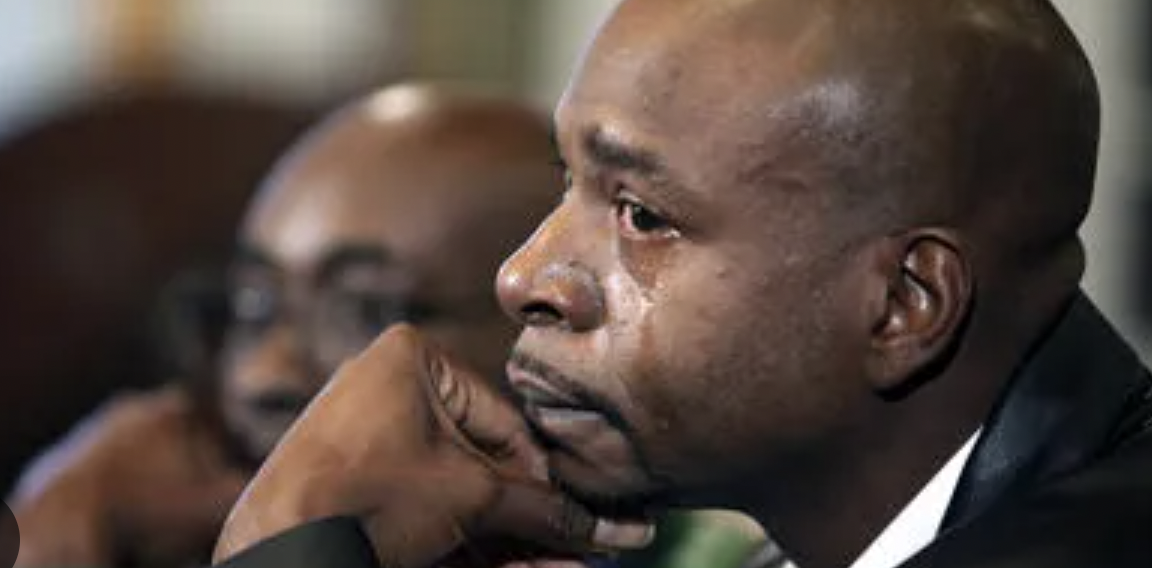Abduction, rape and murder: Should Kentucky pay up when prosecutors get it wrong?

Since 1983, 27 Kentuckians have been exonerated after spending a combined 250 years behind bars – an average of nine years each – for crimes they did not commit.
The longest was locked up for 28 years.
Seven were from Jefferson County.
On Thursday, three exonerees urged the General Assembly’s Interim Judiciary Committee to join 38 states that by law offer compensation to people who are wrongfully convicted.
The three, all from Louisville, testified about the pain they suffered while in prison and the hardships they suffered searching for jobs after they were released and even after they were exonerated.
Mike Von Allmen told how he was locked up 13 years after he was wrongly convicted in 1983 in the abduction and rape of a woman because of mistaken identity.
He held up a photograph of the actual rapist as he told the committee how he was unable to find his trade as a plumber after he we was paroled after serving 11 years of his 30-year sentence because of his conviction.
“This is not a bill that should have any opposition,” he said. “Ask your constituents if they were wrongly jailed for one day, wouldn’t they expect compensation?”
More: ‘Slap on the hand’: How LMPD officers involved in egregious misconduct remain on the force
Edwin Chandler, who was wrongly convicted in 1995 of manslaughter and robbery and spent nine years in prison and another seven on parole while still branded as a felon, told how he suffers from post-stress disorder and had a panic attack − while mowing his lawn − in which he imagined prison walls closing in around him.
Chandler was cleared after new technology identified fingerprints on a beer bottle left at the scene as belonging to another man, and new evidence showed that corrupt Detective Mark Handy coerced a statement from Chandler and taped over a surveillance video that could have pointed to the real killer. Handy pleaded guilty to perjury and was sentenced to one year in prison.
A third witness, Johnetta Carr, told the committee how she was 16 years old when she was interrogated by police for 11 hours until they coerced a false confession from her that she had killed a boyfriend. She was convicted in 2008 and freed and exonerated after four years in custody.
Under HB 571, exonerees who could show they were actually innocent would be eligible for damages from the state of $65,000 for each year they were wrongly incarcerated or $75,000 for every year on death row. The bill would pay $25,000 for every year they were on parole as well as $25,000 for legal expenses and costs.
The compensation would be available if their conviction was reversed or vacated or if they were pardoned, but Rep. Jason Nemes,R-33rd, the bill’s chief sponsor, said the pardon would have to be based on their innocence, rather than other factors.
Under the bill, exonerees would still be able to sue local or state police for violations of their civil rights, but if they recovered a verdict or settlement greater than their state compensation they would be required to reimburse the state for the difference.
Suzanne Hopf, a staff attorney in the Department of Public Advocacy and director of the Kentucky Innocence Project, said compensation is a “part of making exonerees feel whole again."
In an email, Nemes noted that if the compensation bill passes, compensation would be available even if there was no proof of misconduct or wrongdoing by law enforcement. That contrasts with a civil suit, in which the plaintiff would have to prove misconduct.
Chandler received an $8.5 million settlement from Louisville Metro to settle his wrongful arrest lawsuit, and the estate of William Virgil, who served 28 years before he was exonerated in Campbell County, got $28 million.
Committee members seemed to support the legislation and asked only procedural questions about it.
Addressing the witnesses and other exonerees in the audience, Rep. Daniel Elliott, a Republican who represents Boyle and Casey counties and who chaired the hearing, said, “I don’t don’t know what to say to you other than I’m sorry.”
Also read: 'What in the world is going on'? See video of crazy long TSA lines at Louisville's airport
Reporter Andrew Wolfson can be reached at (502) 396-5853 or awolfson@courier-journal.com.
This article originally appeared on Louisville Courier Journal: Kentucky urged to pass HB 571, compensation for wrongful convictions
